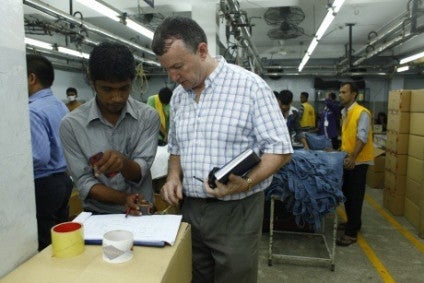
The remediation data was revealed in the Labour Inspection Report 2020-21 from the government of Bangladesh’s Department of Factory and Establishment Inspection (DIFE).
A total of 1,549 factories were inspected under the national initiative, which is backed by the ILO and funded by the governments of Canada, the Netherlands and the United Kingdom, after the Rana Plaza building collapse in April 2013 that killed more than 1,100 people, mostly workers in the readymade garment (RMG) industry.

Discover B2B Marketing That Performs
Combine business intelligence and editorial excellence to reach engaged professionals across 36 leading media platforms.
The Remediation Coordination Cell (RCC) was set up in 2017 to oversee the safety of factories not covered under the Bangladesh Accord on Fire and Building Safety or the Alliance for Bangladesh Worker Safety.
According to the Labour Inspection Report 2020-21, 793 out of 1,549 factories are now active and the units have made 48% progress in remediation as of July this year.
Of the factories, 630 were closed, 100 relocated and 14 units shifted to the Accord and Alliance lists.
The report said that 535 factories had completed less than 50% of the remediation works, 95 factories had progressions between 50-70% and 94 factories had achieved more than 70-80% progress.

US Tariffs are shifting - will you react or anticipate?
Don’t let policy changes catch you off guard. Stay proactive with real-time data and expert analysis.
By GlobalDataIt added that 120 factories had achieved more than 90% progress in remediation.
According to the report, challenges faced by the RCC were that many of the factories were sub-contractors and for those in rented buildings, the RCC faced a lack of cooperation from building owners. There was also a reluctance toward remediation works due to a lack of export opportunities/buyers and a lack of awareness surrounding workplace safety.
In September, a new International Safety Accord aimed at making garment factories safer for workers launched.
The new agreement, which builds on the progress of the former Accord on Fire and Building Safety in Bangladesh, continues legally-binding commitments to the safety of workers in Bangladesh and promises to expand the programme to other countries.
Click here to access the report in full.





